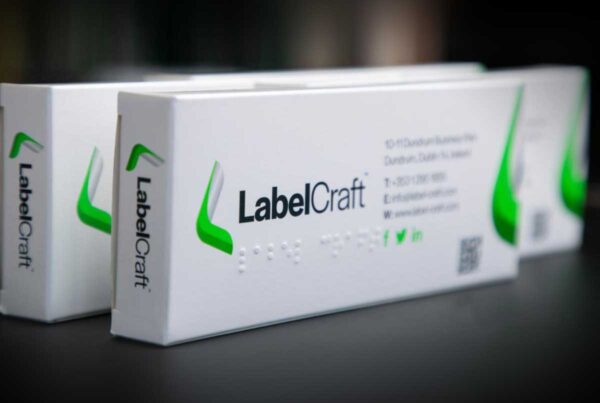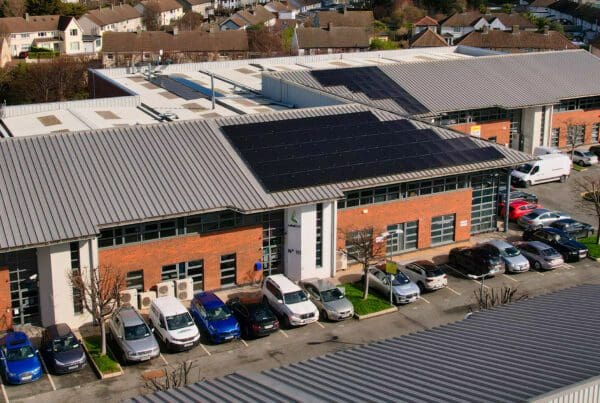Last Updated on October 21, 2025 by admin
Asteria set to become Europe’s largest label supplier
We are Irelands most trusted packaging manufacturer helping build global brands. Established in 1984 and joining The Asteria Group in 2022 we are based in Dundrum Dublin Label Craft are one of Irelands largest self-adhesive label, package and carton manufacturer, supplying to the pharmaceutical, healthcare, medical devices, cosmetic, veterinary and the food and drinks industry.
A European group of label and packaging experts, Asteria wants to maintain local roots in most European countries. Asteria may seem like the new kid on the block, but nothing could be further from the truth! Label printing has been their business for three decades. They were originally a family business, founded in Belgium in 1985, and have grown steadily over the last twenty years. In just five years, they have become the Asteria Group, an international player with now 40 production sites from Estonia to Spain.
The Asteria Group started in Belgium and then expanded to neighbouring countries like France, the Netherlands, and Germany. They kept growing northward with Denmark and southward with Spain. These acquisitions have made their portfolio huge! In just five years, they’re a pan-European player that can offer a wide range of packaging products to customers of all sizes, from tiny businesses to big corporations. They’ve kept buying companies in Northern Europe, like Finland’s Nordic Label and Estonia’s Data Print. All the companies in their group share the same entrepreneurial spirit: they’re flexible and fast. They’re proud of their family business roots and naturally connect with other similar companies in every country they operate in. Each of their portfolio companies has its own special skills and customers, and now they can share this rich heritage and experience within the Asteria Group.
The Asteria Group aim to become the number one local partner in the European labelling and packaging market, serving companies of all sizes as well as multinationals locally, and becoming a sustainable leader in the sector by 2030.
Their plan is to help our customers across Europe find the best labelling and printing solutions. They invest in personalised service in every country and make sure their products are high quality and delivered quickly. They’re working hard to achieve this goal. Even though Asteria is growing internationally, they still want to be close to their customers and understand their needs. Their customers come in all shapes and sizes, from big companies to small businesses. Taking care of these customers is a big part of what they do. For many years, as most of their sites were family businesses, Asteria has built strong relationships with local companies. These local companies have grown because they serve international companies that often have a presence in several locations. Multinationals are a big deal for them. They have the right mix of locations, the right team, the right tech (like colour management), and they can tailor their services to meet the needs of these big international companies.
What are the key segments for the future?
Asteria has been focusing on high-value labels and packaging, so they’re going to keep growing in the food and convenience industries. They have all the food safety certifications (BRCGS, ISO, etc.) to make sure everything is safe, including for special products. They’re not just in food though – they’re also looking at cosmetics and home care. Customers want to see their products on shelves and interact with the brand, so Asteria is ready to help them with that. They’re also interested in the pharmaceutical and healthcare sectors. These industries are growing because consumers want more, and Asteria has plants that can make labels and packaging for this market. In these key sectors, seven of their products will be the main drivers of their growth in 2025 and 2026: self-adhesive labels, linerless pouches, specialist IML labels, folded cartons, flexible packaging, shrink sleeves, and more.
How important is new technology to your strategy?
Innovation is the key to international growth, and technology is the driving force behind it. But here’s the thing: technological innovation should always be focused on serving customers. That means delivering the fastest delivery times, ensuring the highest quality, and keeping the business running smoothly. And that’s exactly what Asteria is doing for 2025/2026. They’re using pre-press automation to process requests faster and reduce human errors. And they’re taking it to the next level by integrating this technology into the cloud. This way, they can quickly mobilise resources at their local sites whenever they need them. Of course, they’ll also need a solid IT infrastructure to support all this innovation. But that’s not all. Asteria is also investing in its operations to become a leader in reducing the environmental impact of the label converting industry. They’re closely analysing the ESG impact of their suppliers and the materials they use, and they’re committed to reducing their own footprint by investing in new machinery like Comexi, Bobst, CO2-neutral HP inkjet printers, and UV-LED curing.
How does the Asteria Group integrate corporate social responsibility into its vision and activities?
The global waste problem is a real issue, and the way we use materials is speeding up climate change. Asteria Group needs to change their thinking and start acting. They need to invest in product innovation for sustainability. Asteria is ready to commit fully to this approach and is already promoting it to their customers. The fact that the market isn’t changing as fast as the company is doesn’t stop Asteria from making sustainability their top priority. Asteria Sustainable Solutions is our product range, which we launched two years ago and has four categories: Asteria LESS, LOOP, LOVE, and LIFE. Today, they can offer a sustainable alternative for 90% of the products. These environmentally friendly solutions work just as well as the regular ones and cost less.






